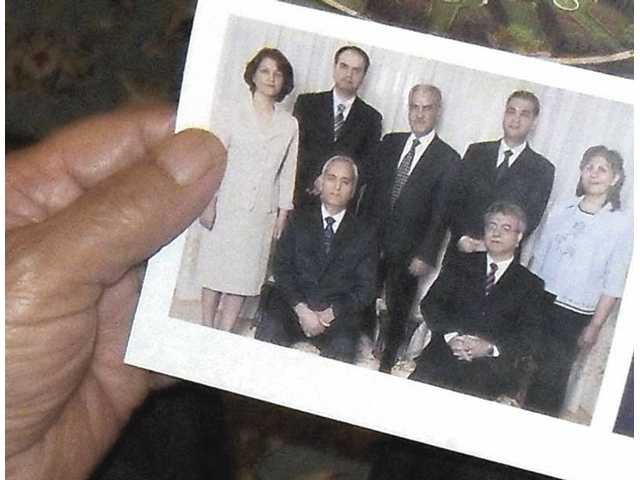by KAMIAR ALAEI *
* Arash and Kamiar Alaei, physicians specializing in the prevention and treatment of HIV/AIDS, were found guilty in 2009 of “cooperating with an enemy government” and sentenced to five years’ imprisonment. Kamiar was conditionally released after spending two and a half years in prison. Arash was granted final release after more than three years in prison.
I spent two and half years of my life unjustly imprisoned in Iran. I’m fortunate I was released in the fall of 2010. But for my former cellmates, members of Iran’s imprisoned Bahá’í leadership group, freedom has proved elusive.
In 2008, my brother, Dr. Arash Alaei, and I were serving sentences in Iran’s notorious Evin prison after being accused of trying to overthrow the government. In reality, we were running a public health program for HIV/AIDS patients and drug addicts. We had been doing this not only with government approval but also government funding. However, the government’s priorities changed, and my brother and I soon found ourselves in prison for doing what had been praised in the past.
My Baha’i cellmates, however, were never in the good graces of the government. Baha’is are the largest non-Muslim religious minority in the country. Since the 1979 revolution, their community has undergone severe persecution with many executed.
My cellmates, Behrouz Tavakkoli, Afif Naiemi and Jamaloddin Khanjani, had been accused of espionage, propaganda against the Islamic Republic and the establishment of an illegal administration — false charges designed to conceal the religious bigotry motivating their imprisonment. Other members of the leadership group, Saeid Rezaie and Vahid Tizfahm, shared a prison cell with my brother, and Mahvash Sabet and Fariba Kamalabadi were imprisoned in one of the female wards at Evin. These seven individuals had done nothing wrong and were simply tending to the religious needs (marriages, divorces, funerals, etc.) of their community.
About 100 Baha’is are imprisoned in Iran, according to a recent report from the U.S. Commission on International Religious Freedom. That is about double the number when I was in the country. The 300,000-member religious community faces restrictions on worship, education and employment designed to impoverish it and destroy its religious identity. For decades, Iranian citizens have been exposed to the government’s pervasive propaganda against the Baha’is with harmful effects on attitudes. Inciting hatred towards them is an almost daily activity of the regime’s state-sponsored media outlets.
When three Baha’is were placed in a cell with me shortly after their release from some four months in solitary confinement, they immediately found ways to serve their fellow prisoners. One of my Baha’i cellmates, Afif Naeimi, a businessman and a father of two, would go out of his way to wash other prisoners’ dishes. He would also clean the bathroom for our cell, even when it was not his turn. Another Baha’i cellmate, Behrouz Tavakkoli, a social worker who lost his government job in the 1980s because of his religion, offered counseling services to his cellmates.
Knowing that the Baha’is were, like my brother and me, wrongfully jailed, I wanted to improve the prisoners’ attitudes toward them — so I competed with Naeimi for the chance to wash dishes. We supported each other in our plans to help the other prisoners in different ways. The prisoners began to see our friendship and how the Baha’is were doing more than their assigned chores. When I started teaching English classes to the inmates to encourage them to have some hope, the Baha’is would participate and urge others to join. This caused attitudes to change.
One of my vivid memories is of the oldest of the three Baha’is in my cell, Jamaloddin Khanjani, who was in his late 70s. He rose every morning at what must have been 5 a.m. — I can’t be sure since we did not have any watches or clocks — to pray. And every night, he and the other two Baha’is prayed individually at length before going to sleep.
After a while, the guards saw that the prisoners began to be won over by the character of the Baha’i prisoners. This concerned the guards. So, they put the Baha’is in a cell to isolate them. The cell was too small for all five of them to be able to stretch their legs at night to sleep. They had to take turns.
For them, May 14 marked the beginning of the fifth year of their incarceration. Each is serving a 20-year sentence, which, for Khanjani, means life. I hope the international community will persuade the government of Iran to release them. We should continue to fight for the freedom of these prisoners of conscience.
—
See Translation into Persian here: http://www.iranpresswatch.org/fa/post/4501


June 4, 2012 4:58 pm
May God bless and protect every Baha’i that is in Iranian prisons. There are millions and millions of people around the world that remember them & their families, and pray for their well being daily. The abuses, atrocities, and the crimes of the Islamic republic of Iran is being documented in detail by numerous organizations and governments throughtout the planet. They will be held accountable for their deeds. JUSTICE always prevails!!